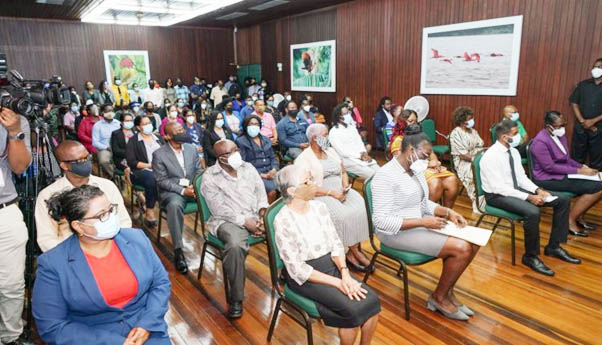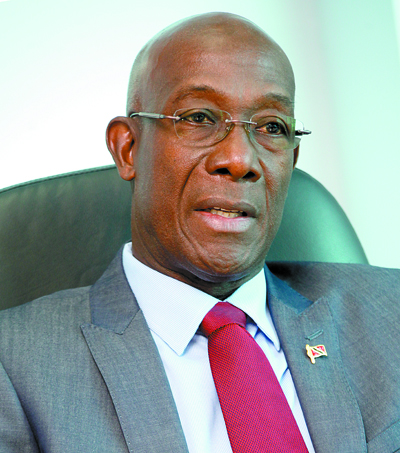Industrial relations tensions arising out of adjustments to customary public service work schedules on account of the imponderables of the COVID-19 pandemic, are beginning to arise in some Caribbean territories.
The threat of such an eventuality surfaced in Trinidad and Tobago last week after the Head of the Public Service Association (PSA) the trade union representing the twin-island republic’s public servants, proffered a militant response to a back-to-work order to public servants issued by Prime Minister Dr Keith Rowley as part of the wider lifting of the COVID-19-related restrictive measures on the twin-island Republic.

Shortly after the Prime Minister’s directive that public servants return to full-time work, PSA President Watson Duke challenged Dr Rowley’s order which set aside the earlier adjusted work schedule designed to facilitate the implementation of a suitable social distancing regime aimed at limiting the spread of the pandemic. The public service trade union boss reportedly alluded to the fact that while the Prime Minister had ordered a full resumption of work by public servants, social distancing protocols that place limits on the number of persons who can travel in a mini bus or taxi, and limit the sizes of public gatherings, remain in place. He noted further that while the recently expanded boundaries for the protocols had retained some protective measures for some categories of persons including religious worshippers and beachgoers, Dr Rowley had ordered public servants to return to work in circumstances where the behaviour of the COVID-19 maintains its unpredictability.
Last weekend the Trinidad and Tobago Prime Minister also removed a ban that had been placed on recreation at beaches, cinemas, casinos and gymnasia but retained the restrictions on dine-in restaurants and bars. Trinidad and Tobago is one of the CARICOM countries where government has been under pressure from private sector lobbyists to relax the COVID-19-strictures which they say are impacting negatively on the country’s economy.
Similar limited lifting of restrictions on public entertainment and trading and directives for public servants to return to the customary work schedule have occurred here. The announcement that the roster arrangement for public servants in Guyana had come to an end was made by Minister in the Office of the Prime Minister Kwame McCoy. The announcement attracted no union response though what was felt to be the curt manner in which it was made attracted some measure of critical comment from several public servants.
Once the McCoy announcement had been made, various other public service agencies used their respective communication channels to direct staff that they were required to return to full-time work immediately. In the instance of the Ministry of Local Government, the directive was attended by a memorandum from the Permanent Secretary informing that as a corollary to the directive that staff resume full-time work, the Ministry “will discontinue transporting staff to and from work.” At the same time the memorandum advised the Ministry’s staff to “take all necessary precautions commuting to work.”
Tensions in the public sector arising out of possible COVID-19 on-the-job risks have, however, arisen in the health sector in Guyana. Last month, there occurred a brief faceoff between government and state-employed nurses on the issue of the payment of risk allowances on account of the circumstances that obtain in the COVID-19 environment.
In Guyana, the view has been expressed that the recent reducing of the curfew hours and the relaxing of strictures on some areas of economic activity have to do with government’s focus on averting the opening up of differences between itself and the private sector. Members of the Guyana Police saddled with the responsibility of enforcing the curfew and some of the other restrictions have told this newspaper that the shortening of the curfew hours effectively places additional pressure in circumstances where it has become commonplace for persons to ignore the strictures.
The recent reduction of the curfew hours and the concessions to extended business hours have met with few audible public complaints though what is certain is that at the backs of many minds will be the timing of what is being regarded here as the relaxation of restrictions at a time when there are concerns over the ever rising numbers of Guyanese who are testing positive for COVID-19.








